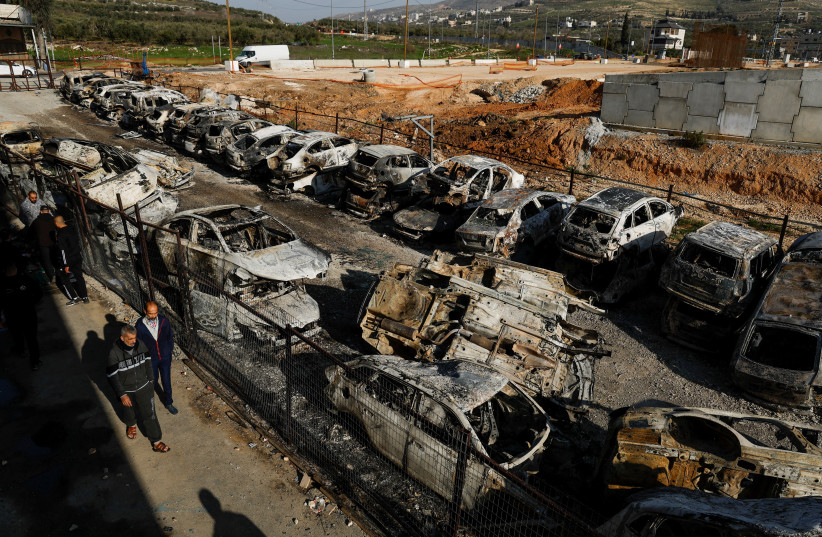The day after Israeli settlers torched dozens of homes and vehicles, the Palestinian town of Huwara was a veritable ghost town, with only a few residents, a small crowd of journalists and scattered Israeli soldiers present on the streets.
A smell of burnt rubber hung in the air, with some of the fires lit by settlers overnight still smoldering. From the windows, local residents could be seen watching the streets, largely staying indoors after the night of violence.
Huwara sits on Highway 60, a main thoroughfare for both Israelis and Palestinians in the northern West Bank. While it has been the site of repeated clashes between Israeli and Palestinian civilians throughout the years, the few residents on the streets on Monday said they had never seen anything on this scale.
For years, Palestinians and Israelis have clashed in Huwara, with stone throwing, stabbings, shootings and brawls repeatedly reported in the town by both Palestinians and Israelis.

Last year, the commander of the IDF’s 202nd Paratrooper Battalion and a soldier were wounded by settlers who pepper-sprayed them in Huwara. Clashes broke out in the town repeatedly after Palestinian flags were hung on poles in the town last year as well.
Huwara is located at a central point of the three northern-most settlements in the Samaria region: Har Bracha, Yitzhar and Elon Moreh. All are near Nablus and located at a higher vantage point, giving them a strategic security advantage, which has been argued over by the settlers over the years.
Huwara turned into a ghost town
On Sunday, a Palestinian rammed into brothers Hillel Menachem Yaniv and Yagel Ya’acov Yaniv and proceeded to shoot them 12 times point blank. Hours later, settlers from the area streamed into the town and began torching homes and even shooting at Palestinian civilians and Israeli journalists. Amid the pogrom, a Palestinian civilian, Sameh Al-Aqtash, was shot and killed. He had recently returned home after helping earthquake victims in Turkey.
Israeli security forces rushed to the scene to help evacuate Palestinians trapped in the burning homes as the settlers continued to rampage throughout the town and surrounding areas, torching dozens of buildings and vehicles.
A day later, Huwara was empty save for the few shop owners trying to clean up what they could. Most of the residents stayed away from the press at the scene.
The shops along the stretch of the road, including dozens of groceries, butchers and car shops, were all shuttered, many sporting scorch marks from the violence overnight. The streets of the town were covered in debris, with flipped over trash cans, some of which were torched as well, spread throughout the town. Palestinian media says that local residents have been ordered by the IDF to keep their businesses closed in an attempt to keep the peace.
Despite the presence of security forces, settlers were allowed to enter the town again on Monday morning, scuffling with Palestinians and returning Monday afternoon to spark fights again.
The residents at the scene who spoke to journalists stressed that they would remain in the town, stating calmly that “we will sacrifice our lives for our land.”
